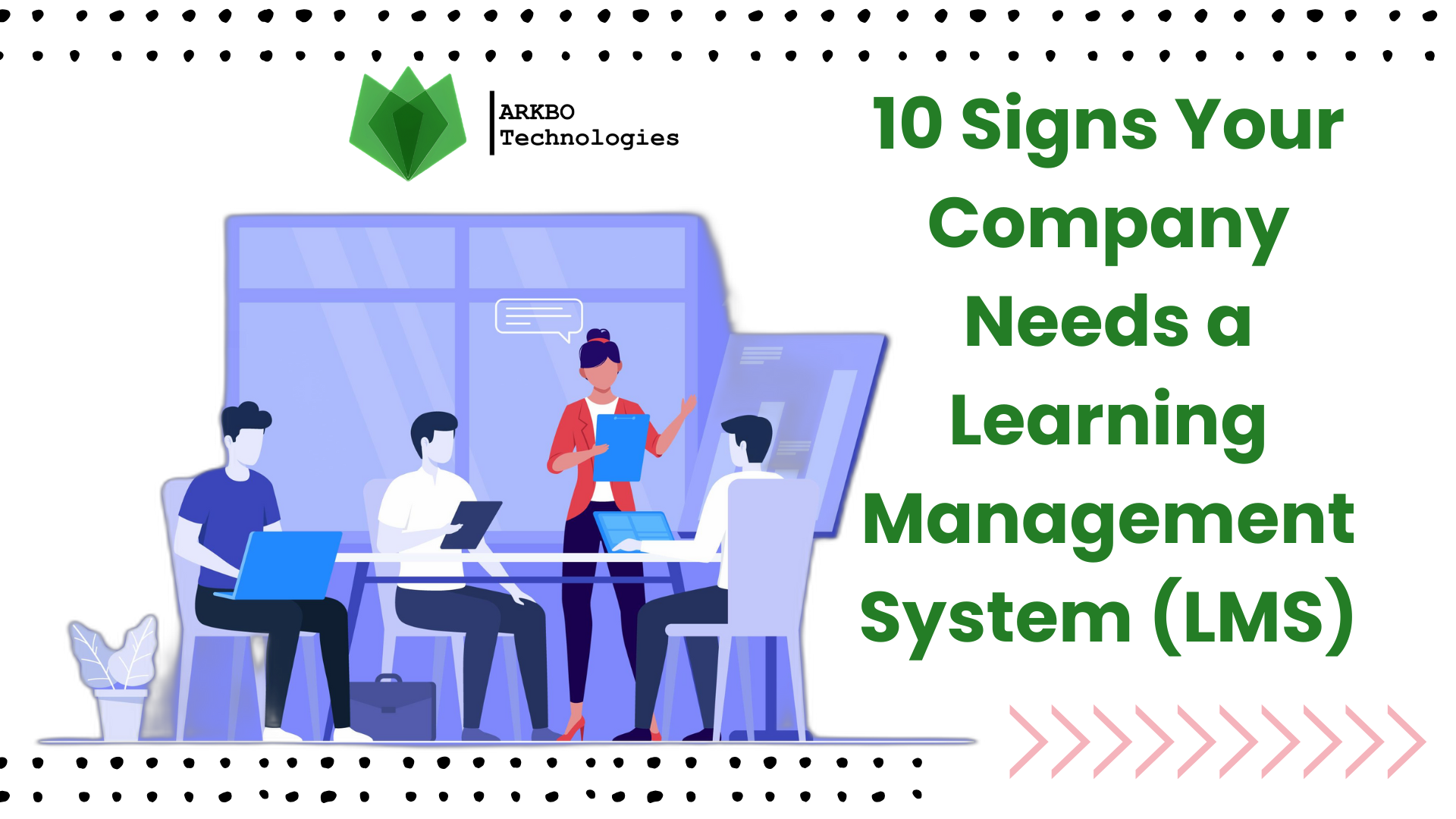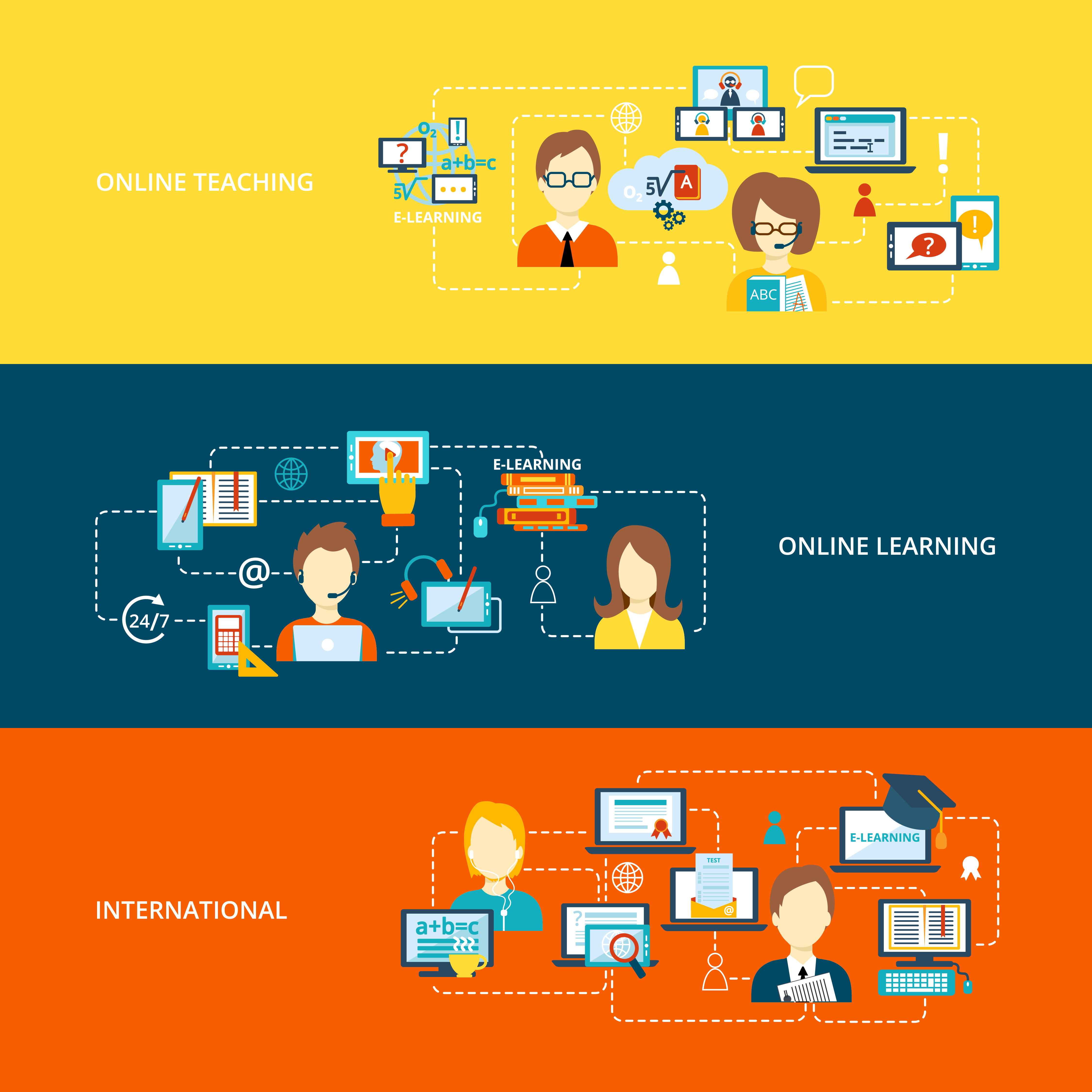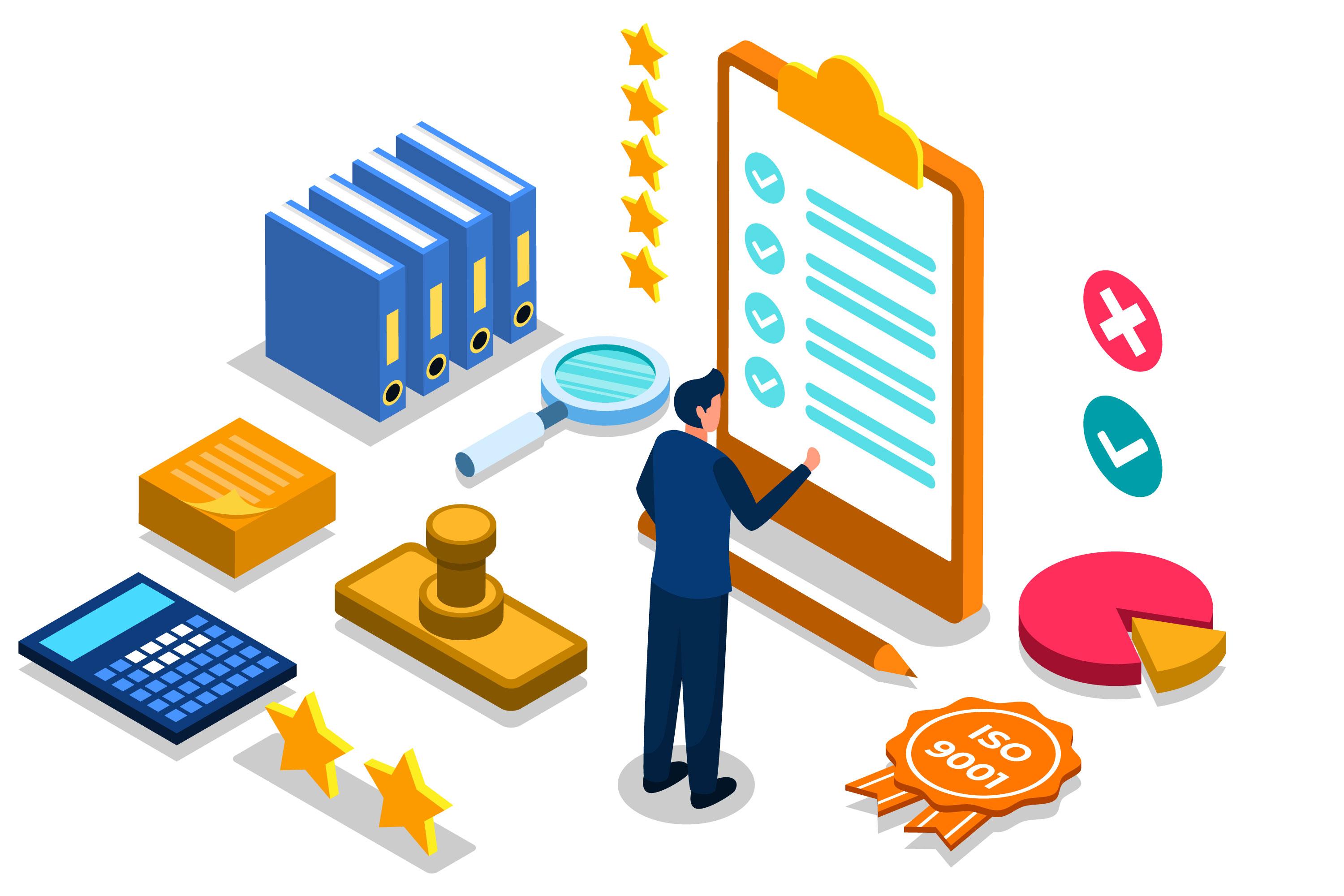
When companies believe in growing and improving, employees feel more supported, motivated, and ready to work together and try new ideas (Carol S. Dweck). Only offering a salary hike is not going to bring the growth; rather, providing them with training and skills will work.
Employee training is not a new concept, but the whole process is tiresome and time-consuming. However, with a Learning Management System (LMS) platform, employee training becomes easier.
So, does my company actually need an LMS? If you have such a question, this blog will help you out. You can look out for the ten signs and then make a decision on whether to invest in LMS or not.
Let’s dive right into discovering those signs!
Here are the ten obvious signs of your company crying for an LMS system.
Organizations are becoming more tech-savvy; this calls for employees to adapt to the new paradigm shift. Such shift certainly brings difficulty among employees.
If your organization is also becoming more modern and digital, then it is one clear sign that you need a Learning Management System (LMS).
Learning and getting trained with the LMS platform makes employees feel equipped and informed. The expansion in their knowledge and skills makes them more confident, productive, and innovative.

Companies follow a hierarchical system; the employees have their specific roles, goals, or learning preferences. In such a situation, traditional training, one-size-fits-all, is a big no-no; it makes employees disengaged or underprepared. Thus, the solution is to have a platform that offers a personalized learning experience.
Considering employees’ job responsibilities, skill levels, and career goals, an LMS creates personalized learning paths based on them. In fact, LMS also favors inclusive and equitable learning in an organization. When employees get an opportunity to learn and sharpen their skills in the way they prefer, it favors knowledge retention, offers motivation, and brings better performance.

The traditional onboarding process requires in-person attendance; it makes the new employees rely heavily on supervisors or colleagues for guidance. In the bigger picture, this traditional method offers an unclear structure or timeline that can leave employees feeling confused, overwhelmed, or even disengaged. This is a clear sign to have an LMS system for an easy onboarding process.
With an LMS, you can digitally arrange and store your company policies, role-specific content, workplace culture, code of conduct, and other details. This ultimately speeds up onboarding, while maintaining quality is key. In the long run, LMS ensures consistency, reduces the workload on HR and managers, and eases new employees' adaptation.

Manually handling the training process means:
constantly tracking who has completed what training
ensuring everyone meets compliance requirements
updating training materials across departments

These activities are time-consuming. Further, the manual training handling brings miscommunication, inconsistent delivery, and negligible visibility of employee progress. Thus, modern training is necessary to overcome these issues.
For modern training in an organization, you can introduce a Learning Management System (LMS), which automates training, tracks training completion, and enhances communication with alerts and updates.
When an organization hires an external trainer for onboarding, skill development, or compliance sessions, it adds to the total cost. Not just cost, but the consistency is also affected, as each trainer has their way of delivering their content. This can lead to confusion or uneven learning results.
But with a Learning Management System, you can bring training in-house and digitize the process. You can also include your custom content (videos, slides, or PDFs). This certainly reduces your cost on trainers.

If training materials are scattered across spreadsheets, email threads, shared drives, and individual folders, it makes an employee have a hard time to find the right resources. This calls for a centralized platform like LMS.
With an LMS, learning modules by department, role, or skill level can be included. The content of each module, such as PDFs, videos, quizzes, policies, certificates, and feedback forms, can be accessed by all the relevant learners.
Fun fact: 83% of companies are already using an LMS platform to manage their learning programs (Source: Shortlister).

Are you conducting employee training, but it is getting difficult to track who’s improving, who needs upskilling, and how training efforts are paying off? If yes, it is a clear sign to get an LMS for your organization.
With a Learning Management System, you can get detailed analytics and progress tracking. Admins can set learning paths, monitor course completions, assess performance, and visualize growth over time.

Your business is ready to expand however, your current training process is slowing everything down.

The traditional training delays upskilling your employees, which can lead to productivity drops and the loss of opportunities slipping away. To solve this, you need an LMS.
A Learning Management System (LMS) can remove these barriers and help you to deliver consistent, scalable training across your entire workforce. The employees get instant access to the resources they need to succeed. Since the workforce is trained, aligned, and ready to perform, the organization can grow confidently.
The organizations that fall in healthcare, finance, education, or the manufacturing industry must stay compliant with legal and industry standards. Staying compliant is a must, not an option.
According to Hyperproof, non-compliance costs businesses around $4 million in lost revenue on average; this is more than twice the cost of maintaining compliance programs. Thus, regular training for employees on safety protocols, privacy laws, ethical conduct, etc, is crucial.

An LMS helps an organization automate compliance training by assigning employees with the necessary course, tracking completion, and generating reports for audits. This eventually reduces the risk of human error and non-compliance penalties.
The tell-tale signs of an organization expanding rapidly are:
a) a large number of new hires
b) additional locations
c) increased operations.
In such a situation, training is a must as it ensures everyone adjusts well. However, the traditional training method is not favorable for all employees. So, what can be done? An LMS can be introduced.
LMS serves as a centralized learning platform for new and existing employees. In the long run, LMS helps your company maintain quality and compliance and ensures high productivity from the workforce.

After being familiar with importance of LMS and understanding that your organization requires an LMS, it is time to find an LMS that actually caters to your needs. Among various options in the market, ARKBO LMS stands out.
ARKBO LMS helps organizations empower their workforce by identifying training needs, skill gaps, and delivering engaging courses, and tracking progress seamlessly. In fact, ARKBO LMS is on the top list of the best LMS in Nepal and hence chosen by leading educational institutes, financial organizations, and training centers.
Final Thoughts
Are you in a situation to decide whether or not to invest in Learning Management System (LMS), then you can look out for these 10 signs.
Interestingly, every $1 invested in online training results in around $30 in increased productivity; all thanks to faster skill application and reduced training time (Shift eLearning). Thus, investing in online learning with an LMS is a high-ROI action.
If you want a reliable LMS, ARKBO LMS is the best choice. It is a top choice of leading businesses and institutions that seek to empower their workforce and eventually attain their business goals.
Want to make your organization stronger with skilled and updated employees? Trust ARKBO LMS. Contact the team ARKBO to book a free demo or consultation.
Read More: Complete Guide to LMS